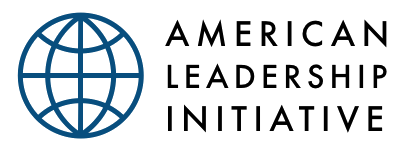Congressional Trade Policy Forum
/Attendees:
Congressman Don Beyer
Congressman Earl Blumenauer
Congresswoman Suzan DelBene
Congressman Ron Kind
Congressman Rick Larsen
Congresswoman Stephanie Murphy
Doug DeMark Photography LLC
Six members of Congress participated in ALI’s Trade Policy Forum discussing a new paradigm for trade policy. Thought leaders from think tanks, business and civil society, along with senior congressional staff joined the discussion.
Key discussion points included:
· The U.S. has had a serious labor disruption due to technological advancement which has been accelerated due to trade.
· This labor disruption needs to be addressed in a way that is not tied to trade. The U.S. needs a comprehensive system which has assistance for training and mobility, wage insurance, health care as well as an income safety net component.
· The U.S. needs a better integration of domestic support policies with trade policies. We need to use trade to drive good jobs of the future so it’s seen as part of the strategy for advancing working Americans.
· There is also a need for significant investment in education and upskilling, increasing funding of R&D funding, and infrastructure to increase American competitiveness and give American workers confidence that they can compete.
· It would be ideal to pass an adjustment assistance package before the Congress considers USMCA.
· It is also important to address issues of corporate governance and the increasing wealth gap to address the perception that trade benefits corporations and not workers.
· The U.S. needs to level the playing field between business and labor stakeholders through tough enforcement of labor provisions in trade agreements and new trade remedies to address foreign labor violations. Stronger enforcement is necessary to restore public faith in our trade agreements.
· The U.S. has lost the larger context of why American global leadership is important, why it’s good for the U.S. and the world. The U.S. created the postwar global institutions and led the creation of a global rules-based system. American national security is fundamentally reliant on global stability, which is now being undermined.
· Addressing the China challenge is an important component of a new trade policy. Tariffs are not the answer, and the U.S. needs to address China in coordination with all of its allies. Can China be dealt with through the WTO? While the WTO isn’t the complete answer for addressing China’s behavior, it is important to use it as much as possible- file additional cases and consider pursuing a complete nullification and impairment case against China.
· The WTO is in crisis. Even though the WTO may not be equipped to address many of the challenges posed by China, it plays a vital role in maintaining baseline trade rules and serving as a platform for international trade dispute settlement. It is important to say that the WTO matters and the U.S. should take a leadership role in reforming it.
· The U.S. should rejoin the CPTPP and seek to negotiate regional and plurilateral high standard agreements with like minded countries
· A great deal of concern was expressed regarding China’s spreading its digital technology in the developing world, and the need for the U.S. to launch the negotiation of a high standard digital agreement without China. For further information see (include link to USA Today blog.)
· The U.S. needs to address China’s aggressive Digital Silk Road Strategy to throughout the developing world, especially Africa. Twenty-two countries in Africa already have Huawei digital infrastructure, which brings with it censorship and cyber issues. In many of the countries, the networks suppress news that is anti-China. The U.S. needs to make catching up on 5G technology and other advanced technologies a top priority.
· U.S. trade leadership should also promote American values, including cracking down on human trafficking, money laundering, and promoting democracy and rule of law as part of our global initiatives.











